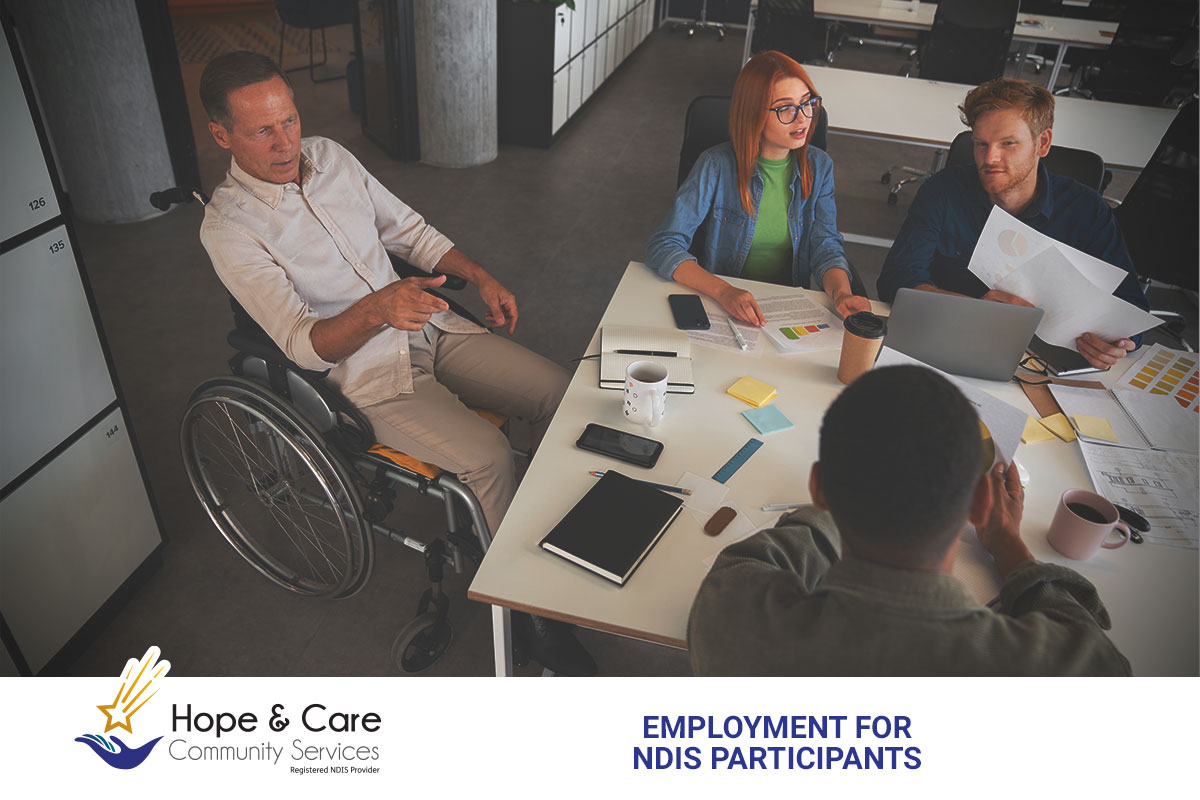
Work plays a pivotal role in our lives, offering not just financial stability but also a sense of purpose, self-worth, and independence. For individuals with disabilities, employment can be especially empowering, enabling them to build new skills, contribute to their communities, and achieve personal goals. The National Disability Insurance Scheme (NDIS) provides vital support for participants who wish to pursue employment, ensuring that everyone has the opportunity to thrive in the workforce.
In this blog, we’ll explore how NDIS participants can find work in Australia, the barriers they might face, and the benefits of employment for both participants and employers. Let’s dive into how employment can transform lives and create inclusive workplaces across the country.
Finding Employment: Resources and Support Available
In Australia, finding suitable employment for individuals with disabilities is supported by various government initiatives. Disability Employment Services (DES) is a key program that assists people with disabilities in securing meaningful job opportunities. DES offers personalized support, including job search assistance, resume preparation, and workplace adjustments, tailored to meet the specific needs of each participant.
However, some NDIS participants may not qualify for DES or may require additional support. This is where NDIS comes into play, providing employment support tailored to individual needs. NDIS participants have access to a range of resources, including employment-related training, job coaching, and workplace modifications, all designed to help them succeed in the workforce.
Challenges in Employment for NDIS Participants
Despite the available support, NDIS participants often encounter several barriers when seeking employment. According to a recent NDIS survey, the employment rate for people with disabilities remains lower than expected. Approximately 53% of people with a disability are employed, while only 25% of those with severe disabilities are in the workforce.
Some common barriers include:
- Lack of workplace accessibility: Many workplaces are still not fully equipped to accommodate the needs of people with disabilities, making it difficult for them to perform their jobs effectively.
- Limited transition support: The transition from school to work can be challenging without the right support, leading to missed opportunities for young adults with disabilities.
- Job and ability mismatches: Finding a job that aligns with one’s abilities and interests is crucial, but it’s not always easy for NDIS participants to secure such roles.
- Workplace isolation: A sense of isolation or not belonging can deter individuals with disabilities from pursuing or maintaining employment.
- Perceptions about NDIS participants: There is a misconception that NDIS participants are unable or not allowed to work, which can create unnecessary hurdles in the job search process.
- Employer hesitation: Some employers may worry that employing a NDIS participant will be too challenging, or they may offer only limited hours or menial tasks, leading to underemployment.
Overcoming Barriers and Embracing Opportunities
While these challenges are significant, they are not insurmountable. Many employers today are recognizing the value of a diverse workforce and are taking steps to create inclusive environments where everyone can thrive. NDIS participants should not feel discouraged from exploring employment opportunities, as there are numerous pathways and supports available to help them achieve their goals.
Supported Employment is one such pathway. Through NDIS funding, employers can receive assistance to make necessary workplace adjustments and provide ongoing support to employees with disabilities. This ensures that NDIS participants can meet their job objectives while contributing meaningfully to their workplace.
The Benefits of Employment for NDIS Participants and Employers
Employment offers numerous benefits for both NDIS participants and employers. For employers, hiring people with disabilities can lead to:
- A more inclusive workplace: By providing equal opportunities for all, employers foster a culture of inclusion and diversity, which can enhance employee satisfaction and retention.
- Improved public image: Businesses that champion diversity often sees improved customer engagement and brand loyalty.
- Unique perspectives: Employees with disabilities bring fresh ideas and unique talents that can drive innovation and creativity within the organization.
For NDIS participants, the benefits of employment are equally significant:
- Social connection: Work offers opportunities to socialize with colleagues, reducing feelings of isolation and building a sense of community.
- Financial independence: Earning an income provides security and the freedom to make personal choices, leading to a higher quality of life.
- Routine and stability: Having a regular work schedule creates stability and helps participants develop a sense of purpose.
- Personal growth: Employment challenges individuals to learn new skills, stay mentally active, and achieve both NDIS and personal goals.
A Collective Effort for Positive Outcomes
The success of employment initiatives for people with disabilities relies on the collaboration of NDIS participants, employers, service providers, and the broader community. The National Disability Insurance Agency (NDIA) has set an ambitious goal to have 30% of working-age NDIS participants employed in paid work by June 2023. This goal highlights the importance of supporting NDIS participants in their journey towards meaningful employment.
Positive outcomes are already being observed. Research indicates that setting employment goals through NDIS is closely linked to securing and maintaining paid work. Participants involved in community groups also report better employment outcomes. Those aged 25 and over with NDIS employment funding are more likely to find success in the job market. Additionally, the broader economy benefits when carers of individuals with disabilities can return to work. This leads to a more productive and equitable society.
Conclusion
Employment is more than just a job; it’s a gateway to independence, personal growth, and community involvement. For NDIS participants, the journey to finding meaningful work may be challenging. But with the right support and resources this is entirely achievable. Employers, too, stand to gain from embracing a diverse workforce, reaping the rewards of unique perspectives and enhanced workplace culture.
At Hope & Care Community Services, we’re committed to empowering NDIS participants. Together, we can create a more inclusive and fulfilling future for everyone.
Finally, as Registered Provider, we understand the intricacies of the navigating services on your own. Unlock the full potential of your funding and provide the guidance you need to reach your goals. Feel free to Contact Us to explore how we can assist you on your journey. For instance, the NDIS is there to make a positive difference in your life, and we’re here to help!.
Want to learn more? Read other articles :
- Redefine Independence your own way – with HCCS
- NDIS Guide : Navigating Step-by-Step
- Things to consider with NDIS Cleaning Services
HCCS is a registered NDIS provider. Learn more about our services.
♥ We are available in Brisbane! – Our team is just a call away!

It’s reassuring to know there are NDIS finding and keeping a job providers out there, offering tailored help beyond DES. The focus on job coaching and workplace modifications can make a real difference in helping individuals find stability and independence in their careers.
Employment gives NDIS participants more than just a paycheck—it builds confidence, independence, and purpose. While barriers still exist, NDIS employment support helps open doors to meaningful work. Everyone deserves the chance to contribute and grow.